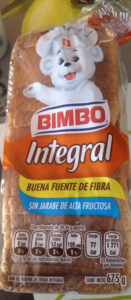False cognates refresher:
False cognates are words that look or sound alike in two languages but mean completely different things. They can be particularly misleading for language learners because their familiar appearance can make you think you understand them, only to find out later that you’ve misunderstood the conversation.
Examples:
To help you navigate these tricky waters, here are some surprising false cognates between Italian and Spanish (and sometimes English too!). Keep these in mind, and you’ll avoid some common misunderstandings.
| Italian Word | Spanish Word | Italian Meaning | Spanish Meaning |
|---|---|---|---|
| Machina | Máquina | car, auto | machine, gadget |
| Camera | Cámara | Room | Camera |
| Tavola | Tabla | Table | Board, plank |
| Burro | Burro | Butter | Donkey |
| Avanzo | Avance | Food left-overs | advance, move forward |
| Salire | Salir | To go up, to climb | To go out |
| Camino | Camino | fireplace | road |
| Guardare | Guardar | To watch | To keep, to save |
| Successo | Suceso | Success | Event, happening |
| Integratore | Integrador | Vitamin supplement | Inclusive, integrator |
| Patente | Patente | driver’s license | patent (of invention) |
| Nomina | Nómina | nomination | payroll |
| Liquor | Licor | spinal fluid | liquor, alcohol |
| Bravo | Bravo | good | fierce, angry, vicious |
So, in Italian, un cane bravo is a good dog. In Spanish un perro bravo can be a vicious dog! There are many more, like rimediare in Italian. To remedy in Spanish and English, but in Italian, it also means to obtain, secure, wangle, scrounge. Conseguir in Spanish.
Tips for Navigating False Cognates
- Context is Your Friend: Always consider the context in which a word is used. This can often help you figure out its true meaning.
- Practice, Practice, Practice: The more you read, listen, and speak the language, the more familiar you’ll become with these tricky words.
- Consult a Dictionary: When in doubt, look it up! A reliable dictionary can be your best friend when you encounter a suspiciously familiar word.
- Study in Pairs of words: Learning false cognates in pairs and focusing on their differences can help reinforce the correct meanings in your memory
False cognates are a fascinating part of language learning that can lead to humorous and sometimes confusing moments. By being aware of these deceptive words, you can avoid misunderstandings. Keep practicing, stay curious, and soon enough, you’ll be navigating these false friends like a pro!
In Italian, an integratore is a vitamin supplement. If it makes you feel better, whole wheat bread is called pan integral in Spanish, at least you can eat both.






